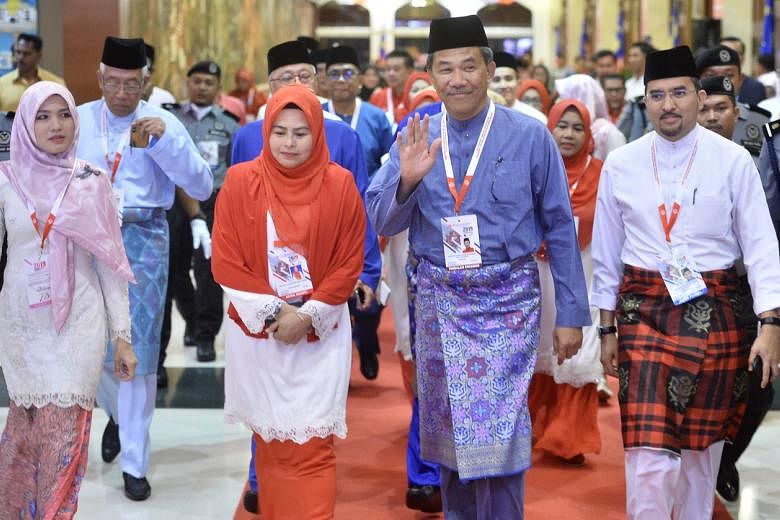KUALA LUMPUR - When Barisan Nasional (BN), the coalition led by the United Malays National Organisation (Umno), was in power for 61 years, the president of Umno was always picked as Malaysia's prime minister and its deputy president, the deputy prime minister.
In the Cabinet formed after the 2013 general election won by the 13-party BN coalition, more than half of the 32 full ministers were from Umno.
The party won 88 of the 137 Parliament seats BN secured in the 2013 polls and had chief ministers (Menteri Besar) in eight of the country's 13 states.
In its heyday, Umno claimed a membership of 3.5 million, a huge number in a country with a population of 32 million where just over 50 per cent of the people are ethnic Malays.
Umno produced six prime ministers after gaining independence in 1957, but was toppled in the 2018 general election by the party's own fourth prime minister, Tun Dr Mahathir Mohamad, who became Malaysia's seventh premier after leading the Pakatan Harapan (PH) coalition to a surprise win last May.
The numbers explain why many Umno lawmakers - both federal MPs and state assemblymen - bolted soon after it became clear that the party had been kicked out of power following the loss.
Its leaders and members are not used to not wielding power, and the financial patronage that came with it.
Since taking over, the PH government has frozen most bank accounts linked to Umno. It comes in the wake of ongoing investigations into allegations that the party had received money from scandal-tainted state fund 1Malaysia Development Berhad (1MDB).
Several former Umno state assemblymen even left the party after the 2018 polls to help in the formation of PH state governments in Kedah and Perak.
As an opposition coalition today, BN is left with three component parties after the other 10 broke away to form their own groups, which include new alliances in Sabah and Sarawak.
Umno today only controls two state assemblies - in Pahang and Perlis.
Although the party won 54 seats in Parliament in 2018, 17 of its MPs have joined other parties, leaving Umno with 37 MPs.
Most of the "frogs" - as party hoppers are called in Malaysia - have joined Prime Minister Mahathir's Malay-based Parti Pribumi Bersatu Malaysia.
Although there are moves to introduce new laws to prevent state assemblymen from joining other parties after being elected, and despite voters despising party hopping, current electoral laws allow it.
Today, though the mood in Umno has drastically improved following by-election successes this year, there is still chatter of yet more party-hopping in Malaysia's turbulent politics.


